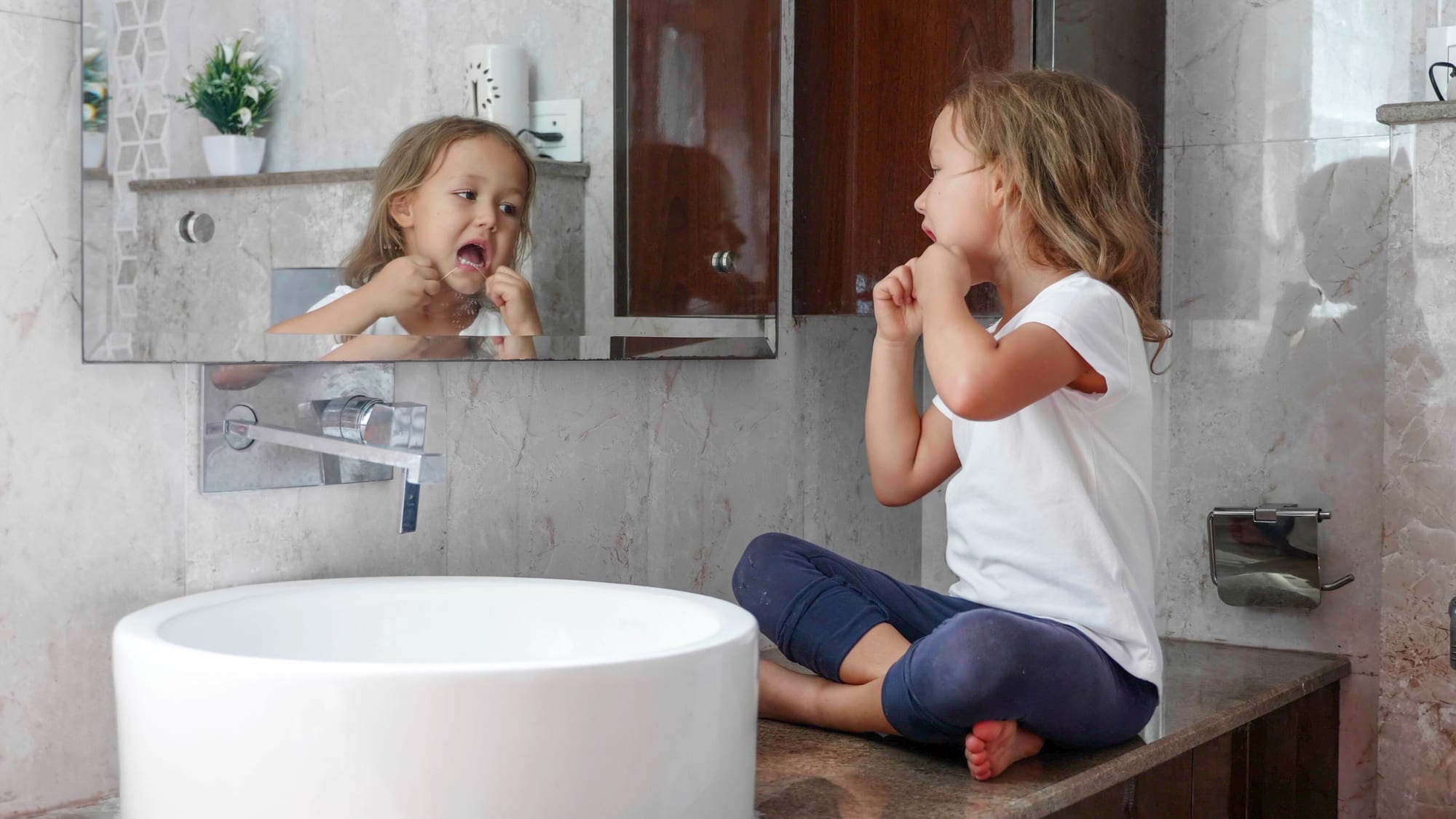Many parents ask the question: if my child’s teeth aren’t permanent, how important is it for him to floss? To which we answer: extremely! Your child’s baby teeth aren’t just taking up space until they fall out, they allow your child to chew, speak, and smile properly. Without proper oral hygiene, these functions can be impaired.
Baby teeth also hold space in the jaws for developing permanent teeth. When a baby tooth falls out too early because of decay or trauma, the permanent teeth are more likely to come in crooked. While using floss won’t help fight against trauma, it will remove food particles and bacteria from the hardest to reach places to prevent tooth decay and gum disease.
Because of this, pediatric dentists like Dr. Matt and the American Dental Association recommend teaching children to floss when they have two teeth that touch.
In addition to the reasons mentioned above, teaching your child to floss now will set him or her up for oral and overall health success in the future!
Here are five surprising benefits of dental floss:
1. Reduces bad breath
This is probably a little less shocking but flossing also reduces bad breath. If you’ve noticed your child constantly has bad breath despite good brushing habits, give floss a try!
Allowing tartar to remain on your teeth is like your child leaving a glass of unfinished milk under his bed– over time, it will make itself known (and you’ll probably be the first one to smell it!).
Have your child floss regularly for a week and see if you notice an improvement. If not, contact your pediatric dentist for an appointment.
2. Prevents gingivitis
Flossing removes plaque buildup on the gum line that leads to gingivitis. The first sign of gingivitis (which is the first stage of gum disease) is bleeding gums. However, don’t be alarmed if your child’s gums bleed the first few times he flosses– this is normal.
If your child’s bleeding gums are also red and swollen, a trip to your pediatric dentist may be necessary.
3. Reduces risk of heart disease
Heart disease is often associated with gingivitis. Bleeding gums opens the pathway for bacteria to enter into the bloodstream and attack the heart. This may result in heart disease or blood clots. Daily flossing is one of the best ways to reduce the risk of heart disease (especially in men).
You probably aren’t worried about your child developing heart disease now, but in twenty years, you’ll be glad you taught him how to floss.
4. Controls diabetes
As surprising as it sounds, flossing and diabetes have something in common– oral bacteria. For children and adults with diabetes, the removal of oral bacteria with dental floss actually helps stabilize glucose levels.
To experience this benefit, consistency is key. Be sure to floss at least once a day to eliminate as much bacteria as possible.
5. Reduces risk of pulmonary disease
When our mouths are healthy, the rest of the body benefits. This is because the mouth is a direct channel to the other organs in the body, including the respiratory system. Sometimes, the oral bacteria in our mouths find their way into the lungs and can lead to bronchitis and pneumonia.
However, this only happens when there are large amounts of bad bacteria in our mouths. Dental floss is a sure way to limit the number of disease-causing bacteria.
Types of floss
There are several types of floss to choose from:
- Flavored floss
- Dental tape
- Monofilament floss
- Floss pick
- Waxed and unwaxed floss
It doesn’t matter which one you choose as long as you do choose one!
Flossing for fun
Teaching your child good oral hygiene habits is no easy task, but it can be done! Check out this blog to learn how to floss properly and ways to make it enjoyable for your little one.
Along with brushing and flossing, be sure to schedule regular dental appointments with a pediatric dentist near you to keep your child’s smile bright and healthy.
To schedule an appointment at our kid-friendly dental office, call (913) 685-9990 today.

